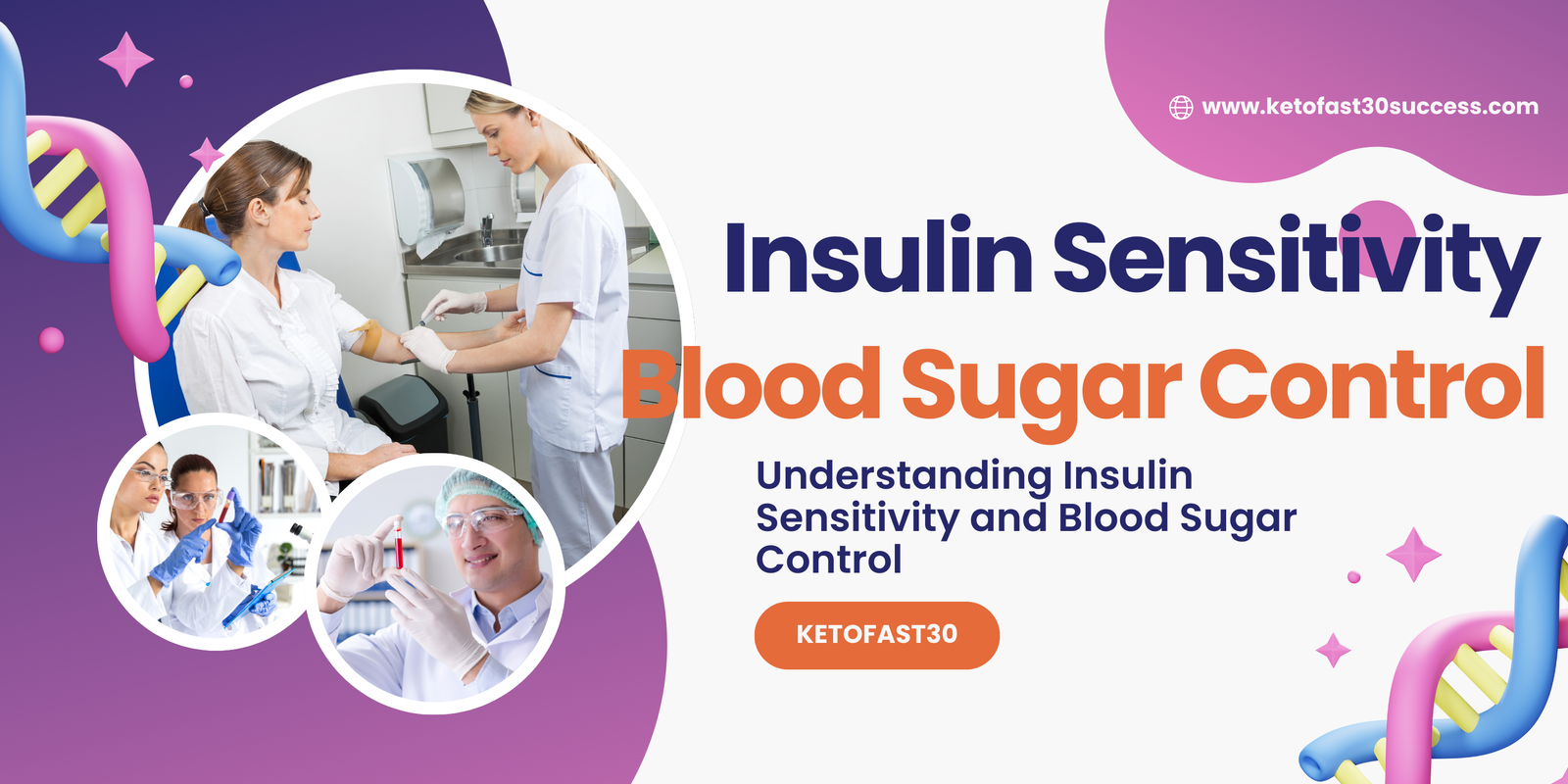Managing blood sugar levels and improving insulin sensitivity are crucial for overall health, particularly for preventing and managing conditions like type 2 diabetes. Combining the ketogenic (keto) diet with intermittent fasting (IF) can be a powerful strategy to enhance insulin sensitivity and stabilize blood sugar levels. Let’s dive into the science behind these benefits and explore practical tips for incorporating these approaches into your lifestyle.
Understanding Insulin Sensitivity and Blood Sugar Control
Insulin Sensitivity: Insulin is a hormone that helps cells absorb glucose from the bloodstream for energy. High insulin sensitivity means your cells respond well to insulin, efficiently using glucose, which keeps blood sugar levels stable. Low insulin sensitivity, or insulin resistance, means your cells don’t respond well to insulin, leading to higher blood sugar levels and potentially type 2 diabetes.
Blood Sugar Control: Maintaining stable blood sugar levels is essential for energy, mood stability, and overall health. Spikes and crashes in blood sugar can lead to energy slumps, irritability, and cravings for unhealthy foods.
How the Keto Diet Improves Insulin Sensitivity and Blood Sugar Control
The keto diet focuses on high-fat, low-carb foods, shifting your body into a state of ketosis where it burns fat for fuel instead of carbohydrates. Here’s how this diet can enhance insulin sensitivity:
- Reduced Carbohydrate Intake: By minimizing carbs, the keto diet lowers blood glucose levels, reducing the need for insulin.
- Stable Blood Sugar Levels: With fewer carbs, there are fewer blood sugar spikes and crashes, leading to more stable energy levels.
- Increased Fat Oxidation: Using fat as the primary energy source reduces the reliance on glucose, further stabilizing blood sugar levels.
Benefits of Keto for Insulin Sensitivity and Blood Sugar Control
- Lower blood sugar levels.
- Decreased insulin production.
- Reduced risk of insulin resistance and type 2 diabetes.
How Intermittent Fasting Enhances Insulin Sensitivity and Blood Sugar Control
Intermittent fasting involves alternating periods of eating and fasting. Common methods include the 16:8 method (16 hours fasting, 8 hours eating) and the 5:2 method (normal eating for five days, restricted calories for two days). Here’s how IF improves insulin sensitivity:
- Reduced Insulin Levels: Fasting periods allow insulin levels to drop, giving the body a break from constant insulin production.
- Enhanced Insulin Sensitivity: Regular fasting can improve how effectively your body responds to insulin, making it easier to manage blood sugar levels.
- Increased Growth Hormone Production: Fasting increases growth hormone levels, which supports fat burning and muscle maintenance, aiding in better blood sugar control.
Benefits of Intermittent Fasting for Insulin Sensitivity and Blood Sugar Control:
- Lower fasting insulin levels.
- Improved glucose uptake by cells.
- Enhanced overall metabolic health.
The Synergy of Keto and Intermittent Fasting
Combining the keto diet with intermittent fasting maximizes the benefits for insulin sensitivity and blood sugar control:
- Faster Ketosis: Intermittent fasting helps you enter and maintain ketosis more quickly, enhancing the benefits of the keto diet.
- Sustained Fat Burning: Fasting extends the period your body spends in a fat-burning state, complementing the high-fat keto diet.
- Balanced Hormones: Both approaches help regulate hunger hormones, reducing cravings and supporting stable blood sugar levels.
- Improved Weight Management: Together, these strategies support weight loss, which is key to improving insulin sensitivity.
Practical Tips for Combining Keto and Intermittent Fasting
- Start Slowly: Ease into both diets by gradually reducing carbs and extending fasting periods.
- Stay Hydrated: Drink plenty of water, herbal teas, and black coffee to stay hydrated and support metabolic functions.
- Monitor Your Blood Sugar: Regularly check your blood sugar levels to track progress and make necessary adjustments.
- Focus on Whole Foods: Prioritize nutrient-dense, low-carb foods like leafy greens, avocados, nuts, and fatty fish during eating windows.
Fun Facts About Insulin Sensitivity
- Exercise Boosts Sensitivity: Physical activity, especially strength training, can improve insulin sensitivity by increasing glucose uptake by muscles.
- Fiber Helps: Eating high-fiber foods can slow the absorption of sugar, helping to stabilize blood sugar levels.
- Sleep Matters: Quality sleep is essential for maintaining insulin sensitivity. Poor sleep can disrupt hormone levels, including insulin.
Conclusion
Enhancing insulin sensitivity and controlling blood sugar levels are vital for long-term health. By combining the ketogenic diet with intermittent fasting, you can significantly improve your body’s ability to manage insulin and glucose, reducing the risk of metabolic diseases. Remember to consult with a healthcare professional before starting any new diet or fasting regimen, especially if you have underlying health conditions.
For more detailed information and personal success stories, visit Healthline’s Guide to Insulin Sensitivity and Verywell Fit’s Overview of Keto and Fasting. Start your journey to better insulin sensitivity and blood sugar control today!

